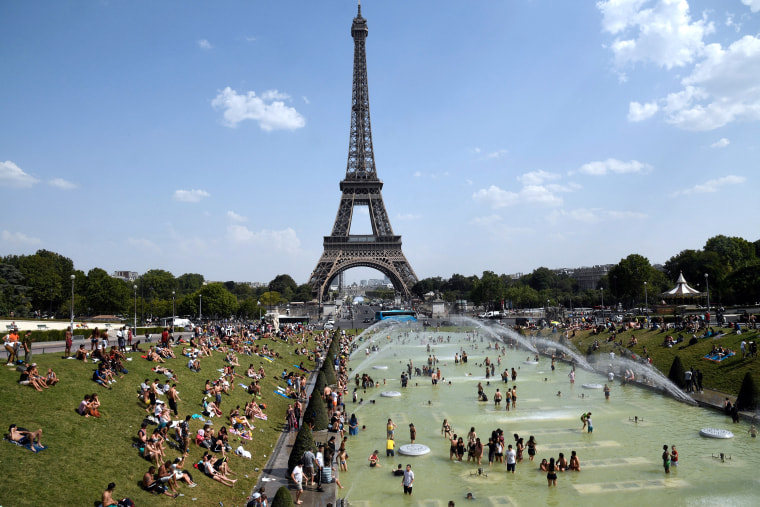A quiet killer hit the cobblestone streets of Paris in the summer of 2003.
Beginning Aug. 4, a massive heat wave settled over France, sending temperatures soaring more than 20 degrees Fahrenheit above normal for nine straight days. When it was over, France had recorded about 15,000 more deaths than would have been expected in that period — including many among the elderly and in Paris. No one checked on them until it was too late.
For heat researchers like Kristie Ebi, a University of Washington professor of global health, the event marked a new understanding of just how dangerous heat waves can be in a world warmed by climate change.
“It was so large, and so many people died. That’s when attention turned,” Ebi said.
On Friday, July 26, all eyes will be on the Olympic torch as it ignites — and also on the weather forecast. Paris will host the Summer Olympic Games 21 years after the deadly heat wave during the same days when catastrophe struck in 2003. Continued global warming has only increased the odds of a heat wave at the Games, where the athletes village won’t have air conditioning. Some Olympic teams have expressed concern about the situation.
Many Parisians have a strategy to deal with the August heat — they leave. Most years, the city would feel subdued in early August as people fled for beaches or coastal climates.
This year, the city will be buzzing with about 10,500 athletes and staffers, 20,000 journalists and 31,500 volunteers expected. Millions will attend the Games as spectators.
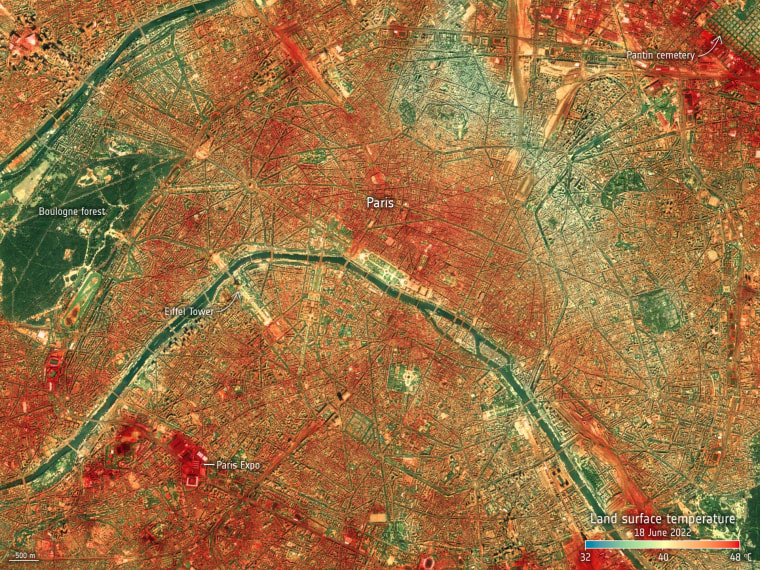
A heat wave during the Games could put athletes and spectators at significant risk, experts said. Last summer provided a stark example of the concern — the Cerberus heat wave sent southern European temperatures soaring to 110 degrees F.
If a similar heat wave struck during the Games, “it could be a big problem,” said Ollie Jay, a professor of heat at the University of Sydney in Australia who said he has also advised Australian athletes on how to cope with the possible heat. Jay helped write the International Olympic Committee’s consensus standards for how to protect athletes from extreme heat at the Games.
In a statement, the International Olympic Committee said, “Athletes’ health and well-being are always at the heart of our concerns. The IOC takes concerns about heat very seriously. A wide range of measures are being taken by the Paris 2024 Organising Committee in consultation with the IOC and the International Federations to mitigate the effects of the temperatures which may occur this summer.” Paris 2024, the organization tasked with coordinating the Games, did not respond to questions about heat at the event.
Even with efforts to address the heat, some researchers question whether holding the Games at the height of summer should continue.
“If we’re really focused on keeping athletes healthy and on top performances at the Olympics, it’s not going to happen if we’re holding it in July in a mid-latitude city” like Paris, said Jennifer Vanos, an associate professor in the School of Sustainability at Arizona State University.
Paris is particularly susceptible to heat waves. Just 10% of Paris is public greenspace, many of its buildings’ roofs are constructed with heat-trapping zinc, and only 25% of French households had air conditioning as of 2020.
The city traps heat and is notably hotter than its surroundings, suffering from what researchers call the urban heat island effect. A 2014 report from the city’s urbanism agency found that temperatures were roughly 4.5 degrees F higher than surrounding rural areas but that hot spots of 15 degrees F were possible.
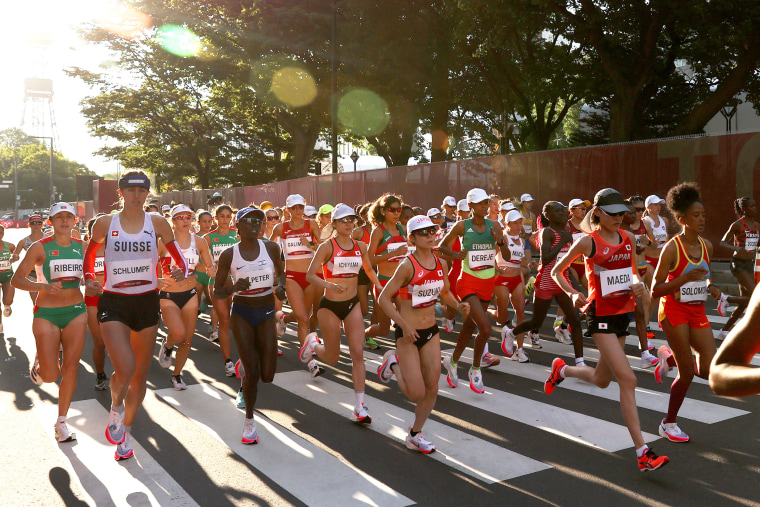
“Among the European capitals, it’s the one with the highest risk,” said Pierre Masselot, a statistician at the London School of Hygiene and Tropical Medicine, who evaluated heat exposure concerns for 854 European cities.
In Paris, the athletes village will feature wildlife-friendly rooftops, carbon-friendly building materials and greenspaces, including a public park.
But the village won’t feature air conditioning in athletes’ rooms, part of a plan to reduce the Games’ greenhouse gas emissions.
Instead, the complex will rely on natural airflow cooling and an underground water-cooling system. Organizers told The Associated Press last year that nighttime temperatures won’t climb above 79 degrees, even in a heat wave.
The climate is warmer than it was in 2003. A study in Nature Climate and Atmospheric Science suggested that heat wave temperatures now have the potential to be up to 7 degrees F warmer than they were during the 2003 heat wave.
During the last Summer Olympics, in Tokyo, heat pushed dozens of athletes beyond their limits and forced organizers to reschedule events.
Some 110 athletes suffered heat-related illnesses during the Tokyo Games as temperatures at some outdoor venues exceeded 95 degrees F, according to research published in the journal BMJ Open Sport & Exercise Medicine. There were 10 cases of severe heat illness, including heatstroke. Several athletes required ice bath treatment, the journal article said.
In fear of Tokyo’s urban temperatures, Olympic organizers moved endurance events, like the marathons and the race walks, about 500 miles north to Sapporo and adjusted start times to early morning hours. It didn’t work — runners in the women’s marathon faced road temperatures above 100 degrees, with high humidity.
Nearly half of the heat-related illnesses were in endurance events in Sapporo.
The Tokyo Games took place a year late during a state of emergency because of Covid-19, and spectators didn’t attend, lightening emergency personnel’s load. Shota Tanaka, an adjunct researcher at Kokushikan University who was a medical operations manager at Olympic venues, said that having no spectators dramatically reduced the strain on medical facilities but that it’s something with which Paris must contend.
“We expected a really high number” of heatstroke cases, Tanaka said. “Holding the Olympic Games starting in August is a basically crazy idea in terms of heatstroke.”
Athletes will prepare for heat in the weeks before the Games.
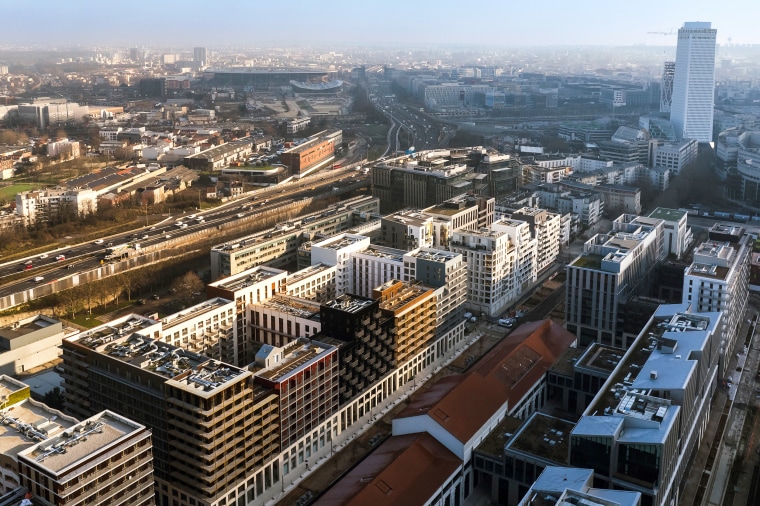
Franck Brocherie, a senior researcher in exercise and environmental physiology at the French Institute of Sports, who will advise his country’s athletes on acclimatization before the Games, said he will encourage athletes to exercise for an hour each day in a heat chamber set with an ambient temperature of about 95 degrees. Brocherie said most athletes will most likely need to train for about two weeks before the Games to prepare for the strain heat can take on their bodies.
“If you’re not acclimatized, you have no chance to perform on the day of your event,” Brocherie said, adding that there was no downside to acclimatization.
Even with acclimatization, heat can dramatically limit athletes’ performance, said Vanos, the Arizona State University associate professor, who is a former collegiate distance runner.
“I don’t think you’ll see many records broken,” Vanos said of endurance events in Paris.
It will be easier to prepare athletes for heat than spectators and volunteers who won’t have an athlete’s level of fitness or acclimatization, the heat experts said.
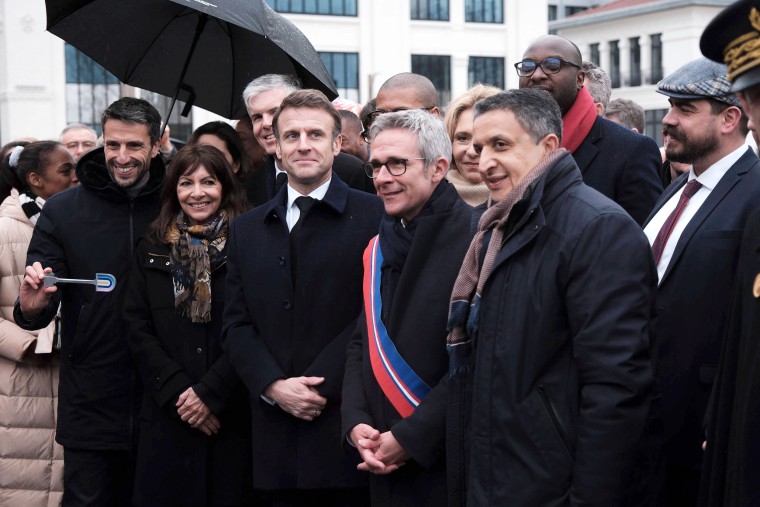
Paris organizers and hospitals should plan for heat illnesses among spectators, Brocherie said.
The amateur marathon will begin at 9 p.m., and the shorter race will start at 11:30 p.m. The late hours are measures to reduce heat risk.
“It is not normal to organize a large-scale recreational marathon in the summer,” Vanos said. “What Paris is doing could be pretty dangerous for the average recreational runner.”
Brocherie said it’s a demanding and hilly course.
“People will face problems during the race,” he said. “It’s really an issue and a risk to increase the load on the medical system.”
NBC Universal has the broadcast rights in the U.S. to the 2024 Olympics.
